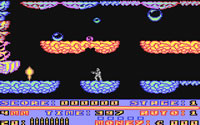 Kids today, eh? Spoilt rotten they are.
Kids today, eh? Spoilt rotten they are.
When I were a lad, an ‘entertainment system’ would take the form of a wobbly cassette player or perhaps a racy CD/radio combination for the well-heeled, but these young ‘uns today are positively spoilt for choice.
Not only can they loll around in their messy bedrooms all day and play state-of-the-art video games and music CDs on their PlayStation Portables, but now the little blighters can watch the latest movie releases too, courtesy of Sony’s proprietary Universal Media Disc (UMD) format.
Within weeks, weary parents around the country will soon be nagged into submission by persistent teenagers demanding the $28.95 (£15.30, Euro 21) to buy the cult classic, ‘The House of Flying Daggers’, scheduled for release on 19th April, 2005.
New films published on UMD will share a simultaneous release date as US/Region 1 DVD releases, with a price of $28.95 (£15.30, Euro 21) or thereabouts with a lower price of $19.95 (£10.50, Euro 15) for films that have already been released.
Accordingly, the other four previously announced UMD titles – Hellboy, Resident Evil: Apocalypse, XXX and Once Upon A Time In Mexico – will all retail for $19.95 when they go on sale on 19th April.
Following the initial flurry of releases in April, Sony plans to annoy parents further with the release of new titles at monthly intervals thereafter.
As a special bonus, the first million PlayStation Portables sold in the US following its 24th March release will also come with a UMD movie copy of Spider-Man 2.
Although the pricing appears attractive to the target audience, it’s the same price as regular DVD and some may feel that they’d be better off buying something with greater compatibility.
 Despite surviving last year’s pre-Christmas BitTorrent blitz, the LokiTorrent site was finally closed down by a Dallas court yesterday.
Despite surviving last year’s pre-Christmas BitTorrent blitz, the LokiTorrent site was finally closed down by a Dallas court yesterday. If they weren’t already unpopular enough with a large part of the online music file sharers, the Recording Industry Association of America (RIAA) has managed to score a spectacular PR own goal by suing a dead woman for swapping music files.
If they weren’t already unpopular enough with a large part of the online music file sharers, the Recording Industry Association of America (RIAA) has managed to score a spectacular PR own goal by suing a dead woman for swapping music files. The most successful gaming computer of the 80s is back – this time in a teensy weensy new ‘Direct to TV’ (D2TV™) unit.
The most successful gaming computer of the 80s is back – this time in a teensy weensy new ‘Direct to TV’ (D2TV™) unit. The DTV contains the classic games: Alleykat, California Games, Championship Wrestling, Cyberdyne Warrior, Cybernoid, Cybernoid II, Eliminator, Exolon, Firelord, Gateway to Apshai, Head the Ball, Impossible Mission, Impossible Mission 2, Jumpman Junior, Marauder, Maze Mania, Mission Impossibubble, Nebulus, Netherworld, Paradroid, Pitstop, Pitstop 2, Ranarama, Speedball, Summer Games, Super Cycle, Sword of Fargoal, Uridium, Winter Games and Zynaps.
The DTV contains the classic games: Alleykat, California Games, Championship Wrestling, Cyberdyne Warrior, Cybernoid, Cybernoid II, Eliminator, Exolon, Firelord, Gateway to Apshai, Head the Ball, Impossible Mission, Impossible Mission 2, Jumpman Junior, Marauder, Maze Mania, Mission Impossibubble, Nebulus, Netherworld, Paradroid, Pitstop, Pitstop 2, Ranarama, Speedball, Summer Games, Super Cycle, Sword of Fargoal, Uridium, Winter Games and Zynaps. Siemens are planning to make a big splash at the upcoming CeBit in Hannover, Germany.
Siemens are planning to make a big splash at the upcoming CeBit in Hannover, Germany. The anticipation around the release of Gran Turismo 4 has been, to put it mildly, huge. Sony are hoping this Playstation2 only game will be their Halo2 type blockbuster.
The anticipation around the release of Gran Turismo 4 has been, to put it mildly, huge. Sony are hoping this Playstation2 only game will be their Halo2 type blockbuster. RealNetworks is enjoying record sales that have helped the Seattle-based Internet company to trim its fourth-quarter loss. The announcement comes amidst its ongoing cost of litigation against rival Microsoft, with whom it’s suing in a billion-dollar case for unfairly promoting its own media software.
RealNetworks is enjoying record sales that have helped the Seattle-based Internet company to trim its fourth-quarter loss. The announcement comes amidst its ongoing cost of litigation against rival Microsoft, with whom it’s suing in a billion-dollar case for unfairly promoting its own media software. Napster, one of the largest players in music downloads, is considering offering a film download service. The new service would sit alongside its music offering and help to give the company a competitive edge over its rivals. The technology is already in place to download movies, so the same service model could easily apply to films, television programmes and video games, now that broadband connection speeds are getting faster and more prevalent.
Napster, one of the largest players in music downloads, is considering offering a film download service. The new service would sit alongside its music offering and help to give the company a competitive edge over its rivals. The technology is already in place to download movies, so the same service model could easily apply to films, television programmes and video games, now that broadband connection speeds are getting faster and more prevalent. Shanghai-based Fudan University has developed the country’s first home-made digital TV chip. Not only that, but the chip has passed appraisals by experts from the Chinese Academy of Sciences and Chinese Academy of Engineering, and it’s outperformed European and US standards in terms of sensitivity and anti-jamming capacities – at lower costs.
Shanghai-based Fudan University has developed the country’s first home-made digital TV chip. Not only that, but the chip has passed appraisals by experts from the Chinese Academy of Sciences and Chinese Academy of Engineering, and it’s outperformed European and US standards in terms of sensitivity and anti-jamming capacities – at lower costs.